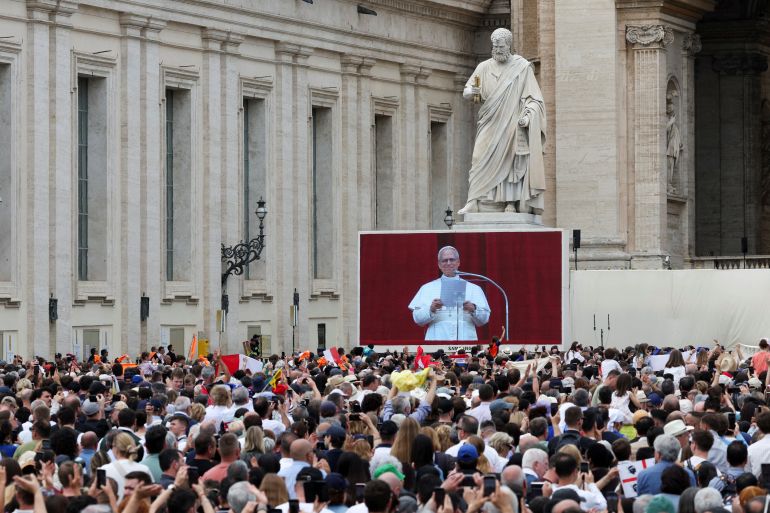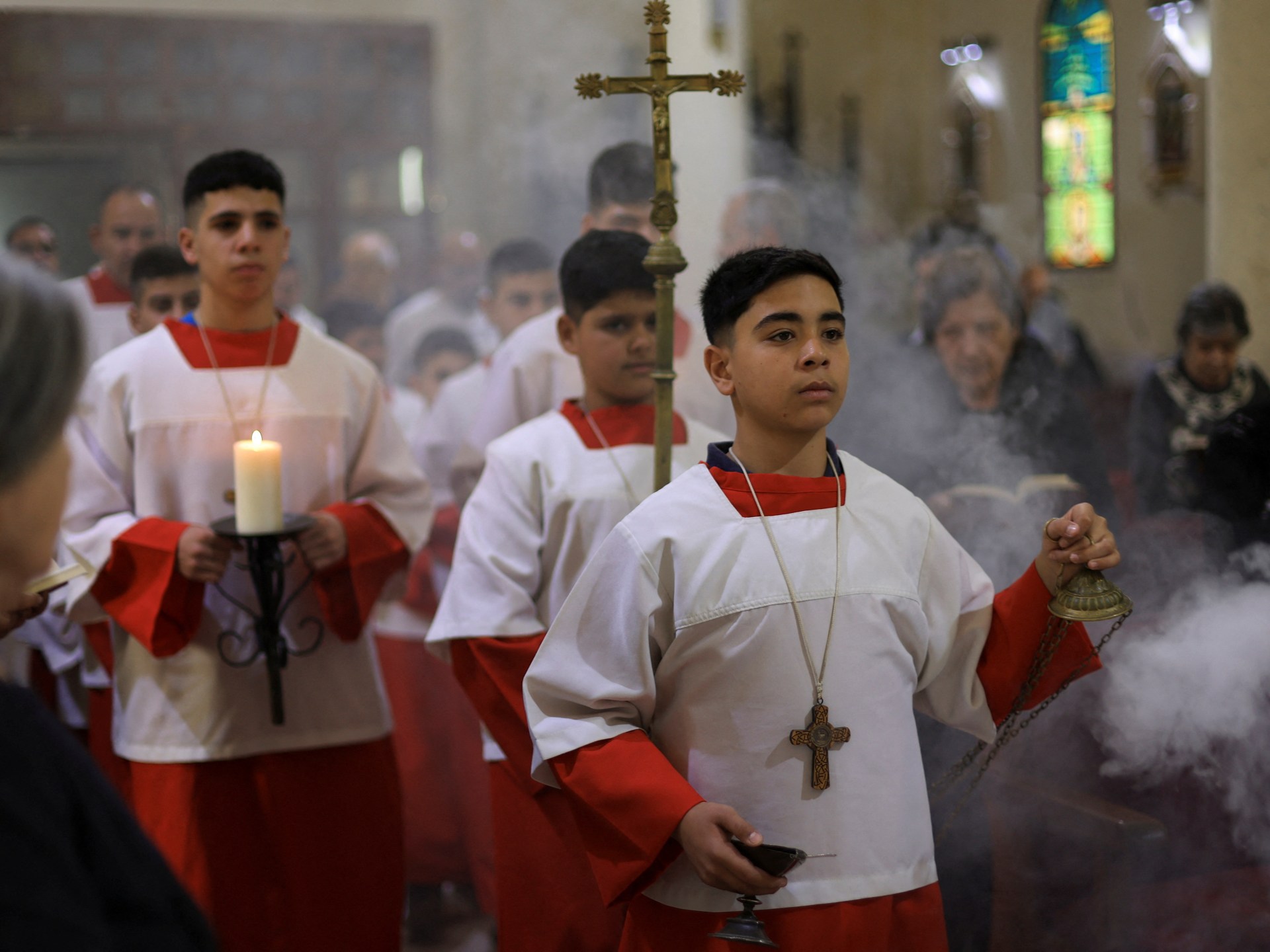Many Christians of the Holy Land rejoiced at the election of Pope Leo XIV as the successor to Saint Peter. Many of us hope that the new pope will follow the legacy of his predecessor, Pope Francis, particularly with regard to issues of justice and peace.
The Holy See has historically played an important role in supporting the Christian presence in the Holy Land, whether through church activities, engagement with influential parties in and around the region, or through material and moral support. This has been reflected in the establishment of institutions such as the Pontifical Mission in Jerusalem, Bethlehem University, the Benedictus Center in Nazareth, and most recently, the donation by Pope Francis of the Popemobile to serve as a mobile clinic for children in Gaza.
Some of the most impactful moments in our recent history have been papal visits to our land — starting with Pope Paul VI in 1964, followed by Pope John Paul II in 2000, Pope Benedict XVI in 2009, and concluding with Pope Francis in 2014.
We, Christians in the Holy Land, hope that Pope Leo XIV will not only come to visit us but also help address some of the challenges we face today in the birthplace of Christianity. As a community of 230,000 people, we are working to strengthen the Christian presence as an active component of the local society, in collaboration with its other components. However, we do need help.
One of the main issues affecting Christian lives in Israel and Palestine is the Israeli-Palestinian conflict. It is a persistent source of regional instability that fuels violence in various forms, which kills many, including Christians.
Rising religious and political extremism makes many of us feel like strangers in our own homeland. Economic deterioration and the declining number of people coming for pilgrimage in the Holy Land due to the conflict are leading to a loss of livelihood and worsening socioeconomic conditions. Widespread despair is driving many to emigrate or plan to leave in the near future, dwindling the numbers of our community.
Many local Christians want the Holy See to engage with key global and regional players to achieve a lasting solution to the Israeli-Palestinian conflict. In his last sermon, Pope Francis spoke about the urgent need for peace in Gaza. In his first sermon, Pope Leo XIV called for an immediate ceasefire and delivery of humanitarian aid to the Strip. We welcome these statements and hope he will continue to do his utmost to promote peace in the Holy Land.
In Palestine, the situation remains unclear due to the Israeli occupation of all territories meant to form a Palestinian state, the ongoing war in Gaza, and the limited authority of the Palestinian Authority in the West Bank — not to mention Israel’s full annexation of East Jerusalem. This reality calls for thoughtful action by the Church, both at the level of the Holy See and locally, to provide people with hope in these dark times.
In Israel, there is a pressing need for cooperation between the Holy See and the local church — bishops, priests, and believers — to resolve many issues that affect the Christian and non-Christian communities. It is crucial to work with all segments of the local society to pressure the state to treat all its citizens equally and preserve their dignity.
Christians hope that the Holy See can collaborate with us in our efforts to achieve equality. We, as a community, face Israeli laws that discriminate against us based on ethnicity and religion; we need support in our efforts to have such laws repealed.
It is also essential to work towards resolving painful issues that have negatively impacted the Christian presence, such as the case of the villages of Iqrit and Biram, whose Catholic Christian residents were expelled before their homes were destroyed by the Israeli authorities in 1951. Since then, the residents and their descendants have been demanding to return to their ancestral lands, but are being denied this right.
There is also a need for stronger intervention by the Holy See to support Christian institutions operating under Israeli control, which face growing challenges, such as attempts by some municipalities to impose heavy taxes in violation of past agreements, the clear discriminatory underfunding of Christian schools by Israeli authorities, and threats against church property.
Many Christians of the Holy Land also hope that Pope Leo XIV will work to enhance unity among them, including efforts to reach a unified date for major religious holidays, especially Christmas and Easter. They also call for increased joint efforts among churches to organise pilgrimages to the Holy Land that include not only visits to religious sites but also interactions with the faithful who live there. This is important because it would help us raise global awareness about the challenges we face and feel an integral part of the universal Church.
As a whole, Christians in the Holy Land, like their fellow Christians around the world, desire to see a father in Pope Leo XIV — a father who visits them and welcomes their visits, consults with them and listens to their concerns, protects them from harm, stands with them when they are attacked or oppressed, and follows in the footsteps of the Church’s founder, who never hesitated to defend the oppressed regardless of how powerful the oppressor might be.
Pope Leo XIV should know that he has many children in the Holy Land who love him and understand how busy he and the Holy See are with so many issues around the world.
In the Holy Land, Christians have prayed — and continue to pray — for his success in his mission, fully aware of how complex it is. But above all, the children need their father — and that is what they expect the most: that he will always stand by their side, despite how busy he might be.







